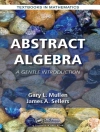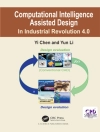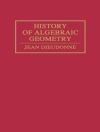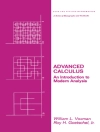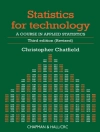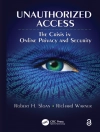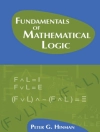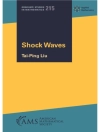A unique discussion of mathematical methods with applications to quantum mechanics
Non-Selfadjoint Operators in Quantum Physics: Mathematical Aspects presents various mathematical constructions influenced by quantum mechanics and emphasizes the spectral theory of non-adjoint operators. Featuring coverage of functional analysis and algebraic methods in contemporary quantum physics, the book discusses the recent emergence of unboundedness of metric operators, which is a serious issue in the study of parity-time-symmetric quantum mechanics. The book also answers mathematical questions that are currently the subject of rigorous analysis with potentially significant physical consequences. In addition to prompting a discussion on the role of mathematical methods in the contemporary development of quantum physics, the book features:
* Chapter contributions written by well-known mathematical physicists who clarify numerous misunderstandings and misnomers while shedding light on new approaches in this growing area
* An overview of recent inventions and advances in understanding functional analytic and algebraic methods for non-selfadjoint operators as well as the use of Krein space theory and perturbation theory
* Rigorous support of the progress in theoretical physics of non-Hermitian systems in addition to mathematically justified applications in various domains of physics such as nuclear and particle physics and condensed matter physics
An ideal reference, Non-Selfadjoint Operators in Quantum Physics: Mathematical Aspects is useful for researchers, professionals, and academics in applied mathematics and theoretical and/or applied physics who would like to expand their knowledge of classical applications of quantum tools to address problems in their research. Also a useful resource for recent and related trends, the book is appropriate as a graduate-level and/or Ph D-level text for courses on quantum mechanics and mathematical models in physics.
Innehållsförteckning
Preface xvii
Acronyms xix
Glossary xxi
Symbols xxiii
Introduction 1
F. Bagarello, J.P. Gazeau, F. Szafraniec, and M. Znojil
References 5
1 Non-Self-Adjoint Operators in Quantum Physics: Ideas, People, and Trends 7
Miloslav Znojil
1.1 The Challenge of Non-Hermiticity in Quantum Physics 7
1.2 A Periodization of the Recent History of Study of Non-Self-Adjoint Operators in Quantum Physics 11
1.3 Main Message: New Classes of Quantum Bound States 18
1.4 Probabilistic Interpretation of the New Models 29
1.5 Innovations in Mathematical Physics 34
1.6 Scylla of Nonlocality or Charybdis of Nonunitarity? 37
1.7 Trends 45
References 50
2 Operators of the Quantum Harmonic Oscillator and Its Relatives 59
Franciszek Hugon Szafraniec
2.1 Introducing to Unbounded Hilbert Space Operators 60
2.2 Commutation Relations 88
2.3 The q-Oscillators 106
2.4 Back to ’Hermicity’–A Way to See It 113
Concluding Remarks 115
References 115
3 Deformed Canonical (Anti-)Commutation Relations and Non-Self-Adjoint Hamiltonians 121
Fabio Bagarello
3.1 Introduction 121
3.2 The Mathematics of D-PBs 123
3.3 D-PBs in Quantum Mechanics 145
3.4 Other Appearances of D-PBs in Quantum Mechanics 158
3.5 A Much Simpler Case: Pseudo-Fermions 174
3.6 A Possible Extension: Nonlinear D-PBs 182
3.7 Conclusions 184
3.8 Acknowledgments 185
References 185
4 Criteria for the Reality of the Spectrum of PT -Symmetric Schrödinger Operators and for the Existence of PT -Symmetric Phase Transitions 189
Emanuela Caliceti and Sandro Graffi
4.1 Introduction 189
4.2 Perturbation Theory and Global Control of the Spectrum 191
4.3 One-Dimensional PT -Symmetric Hamiltonians: Criteria for the Reality of the Spectrum 194
4.4 PT -Symmetric Periodic Schrödinger Operators with Real Spectrum 200
4.5 An Example of PT -Symmetric Phase Transition 206
4.6 The Method of the Quantum Normal Form 219
Appendix: Moyal Brackets and the Weyl Quantization 232
A.1 Moyal Brackets 232
A.2 The Weyl Quantization 236
References 238
5 Elements of Spectral Theory without the Spectral Theorem 241
David Krejei?ík and Petr Siegl
5.1 Introduction 241
5.2 Closed Operators in Hilbert Spaces 242
5.3 How to Whip Up a Closed Operator 257
5.4 Compactness and a Spectral Life Without It 266
5.5 Similarity to Normal Operators 273
5.6 Pseudospectra 281
References 288
6 PT -Symmetric Operators in Quantum Mechanics: Krein Spaces Methods 293
Sergio Albeverio and Sergii Kuzhel
6.1 Introduction 293
6.2 Elements of the Krein Spaces Theory 295
6.3 Self-Adjoint Operators in Krein Spaces 304
6.4 Elements of PT -Symmetric Operators Theory 320
References 340
7 Metric Operators, Generalized Hermiticity and Lattices of Hilbert Spaces 345
Jean-Pierre Antoine and Camillo Trapani
7.1 Introduction 345
7.2 Some Terminology 347
7.3 Similar and Quasi-Similar Operators 349
7.4 The Lattice Generated by a Single Metric Operator 362
7.5 Quasi-Hermitian Operators 367
7.6 The LHS Generated by Metric Operators 380
7.7 Similarity for PIP-Space Operators 382
7.8 The Case of Pseudo-Hermitian Hamiltonians 389
7.9 Conclusion 392
Appendix: Partial Inner Product Spaces 392
A.1 PIP-Spaces and Indexed PIP-Spaces 392
A.2 Operators on Indexed PIP-space S 395
A.2.1 Symmetric Operators 396
A.2.2 Regular Operators, Morphisms, and Projections 397
References 399
Index 403
Om författaren
Fabio Bagarello, Ph D, is Professor in the Department of Energy, Information Engineering, and Mathematical Models at the University of Palermo, Italy. Dr. Bagarello is the author of over 160 journal articles and Quantum Dynamics for Classical Systems: With Applications of the Number Operator, also published by Wiley.
Jean Pierre Gazeau, Ph D, is Emeritus Professor of Physics in the Laboratory of Astroparticles and Cosmology at the University Paris Diderot, France. Dr. Gazeau is the author of over 200 journal articles and two books, including Coherent States in Quantum Physics, also published by Wiley.
Franciszek Hugon Szafraniec, Prof. Dr hab., is a retired professor from the Jagiellonian University in Kraków, Poland. He remains an active researcher in functional analysis, and his research interests include operator theory, harmonic analysis, complex function theory, and mathematical foundations of quantum physics. Dr. Szafraniec is also an authority on reproducing kernel Hilbert spaces.
Miloslav Znojil, Dr Sc, is Leading Research Worker at the Nuclear Physics Institute of the Czech Academy of Sciences and the Deputy Director of the Doppler Institute for Mathematical Physics and Applied Mathematics in the Czech Republic. Dr. Znojil is the author of over 300 journal articles and a member of the Czech Union of Mathematicians and Physicists.


